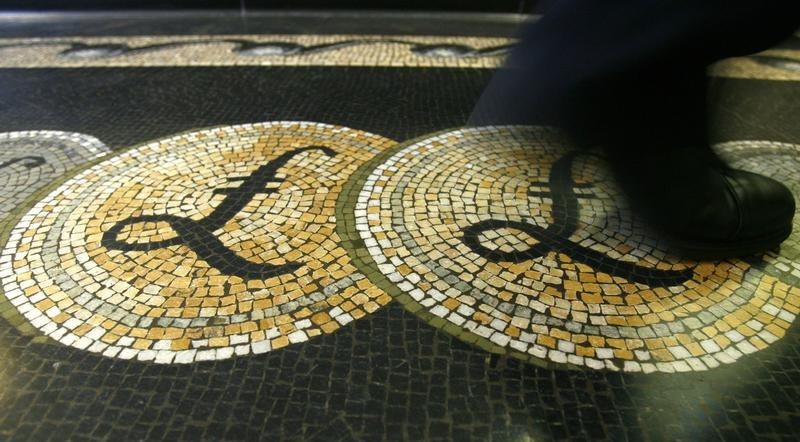Investing.com - Sterling recovered early morning losses on Friday following perceived Brexit progress at the EU Summit and the release of a decade-low budget deficit for September
Following a sluggish start on Friday morning, by 11:10 GMT the pound jumped 0.21% against the dollar. GBP/USD sat at 1.3186. Early morning trading saw cable dip below 1.3100 to 1.3096, a ten-day low for sterling.
Figures from the Office of National Statistic were released on Friday morning showing that public sector net borrowing was a seasonally adjusted £-5.902 billion pounds, the lowest rate for any September since 2007. The consensus figure was £6.5 billion, marking the third consecutive month of figures that beat economist predictions.
The August rate was also revised down to £4.716 billion. This will be welcome news from Chancellor Philip Hammond who has recently come under pressure from members of his own party for his stance on Brexit.
The pound moved higher on the borrowing data, boosted also by comments made by several European leaders attending the EU Summit in Brussels.
President of the European Council. Donald Tusk confirmed that internal discussions would begin on the ‘second-phase of negotiations,’ leading investors to believe that trade talks will be started by the next round of Brexit negotiations, in December.
Angela Merkel, the German Chancellor, also dampened fears of a ‘no deal’ scenario, stating that the Brexit talks had not reached a stalemate and were in fact progressing. She claimed it was ‘absurd’ to think they would be broken off.
Sterling has come under pressure this week following the release of uninspiring economic data. CPI inflation in September hit 3%, while average earnings only increased by 2.2%. The squeeze on the consumer was further highlighted with retail sales growth dropping 0.8% in September.
Doubts were also cast over the prospect of the rate hike going ahead at the upcoming Bank of England Monetary Policy Committee meeting on 2 November. Bank of England Deputy Governor Sir Dave Ramsden commented on Tuesday that he did not think a rate hike was needed in the coming months, while colleague Jon Cunliffe echoed this sentiment in an interview with the BBC on Thursday. Cunliffe said it was not clear that rates needed to rise soon.
Silvana Tenreyro, a fellow MPC member, did not rule out voting to keep rates unchanged, by stating that a hike was ‘contingent on data.’
The dollar had a bullish morning on hopes that tax reform would be passed. The US dollar index, which measures the currency’s strength against a trade-weighted basket of six major currencies, was 93.32, up 0.34%.
The single currency struggled on Friday as a result of political pressure within the euro-zone. Carles Puigdemont, the president of the region of Catalonia, threatened to declare independence for the region if the government in Madrid continued to ignore his calls for dialogue on the matter.
The Spanish government has since responded by stating it will enact Article 155 of the Spanish constitution, which would remove autonomous powers from the Catalan government. A government spokesperson said on Friday that 'measures to announce direct rule' would be released on Saturday. Spanish Prime Minister Mariano Rajoy also suggested that regional elections would go ahead as early as January next year.
EUR/GBP was down 0.58% to 0.8955. EUR/USD slipped 0.37% to 1.1808.
The pound rallied against safe haven currencies. GBP/JPY rose 0.88% to 149.38, while GBP/CHF was 1,2949, an increase of 0.80%.
The New Zealand dollar continued to struggle on Friday, GBP/NZD was 1.8876, up 0.85%.
GBP/AUD rose by 0.66% to 1.6812. GBP/CAD was up 0.25% to 1.6470.
Investors will be watching to see if further progress is made in Brussels on Friday. Third quarter growth figures for the UK will also be released for the UK next week.
